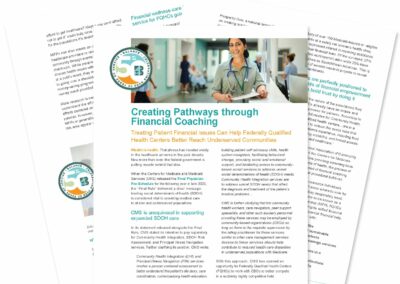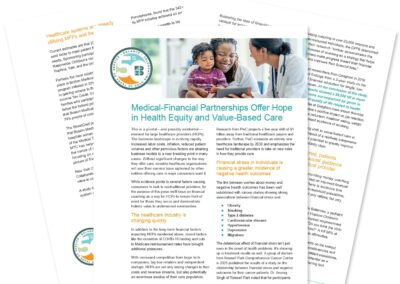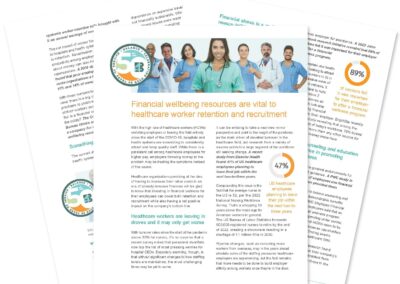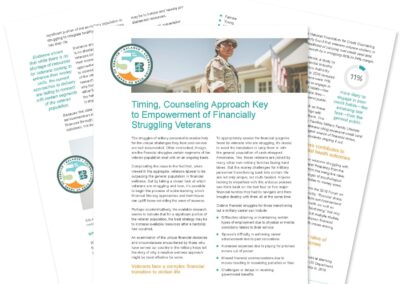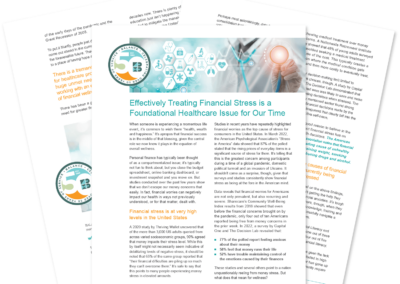Creating Pathways through Financial Coaching
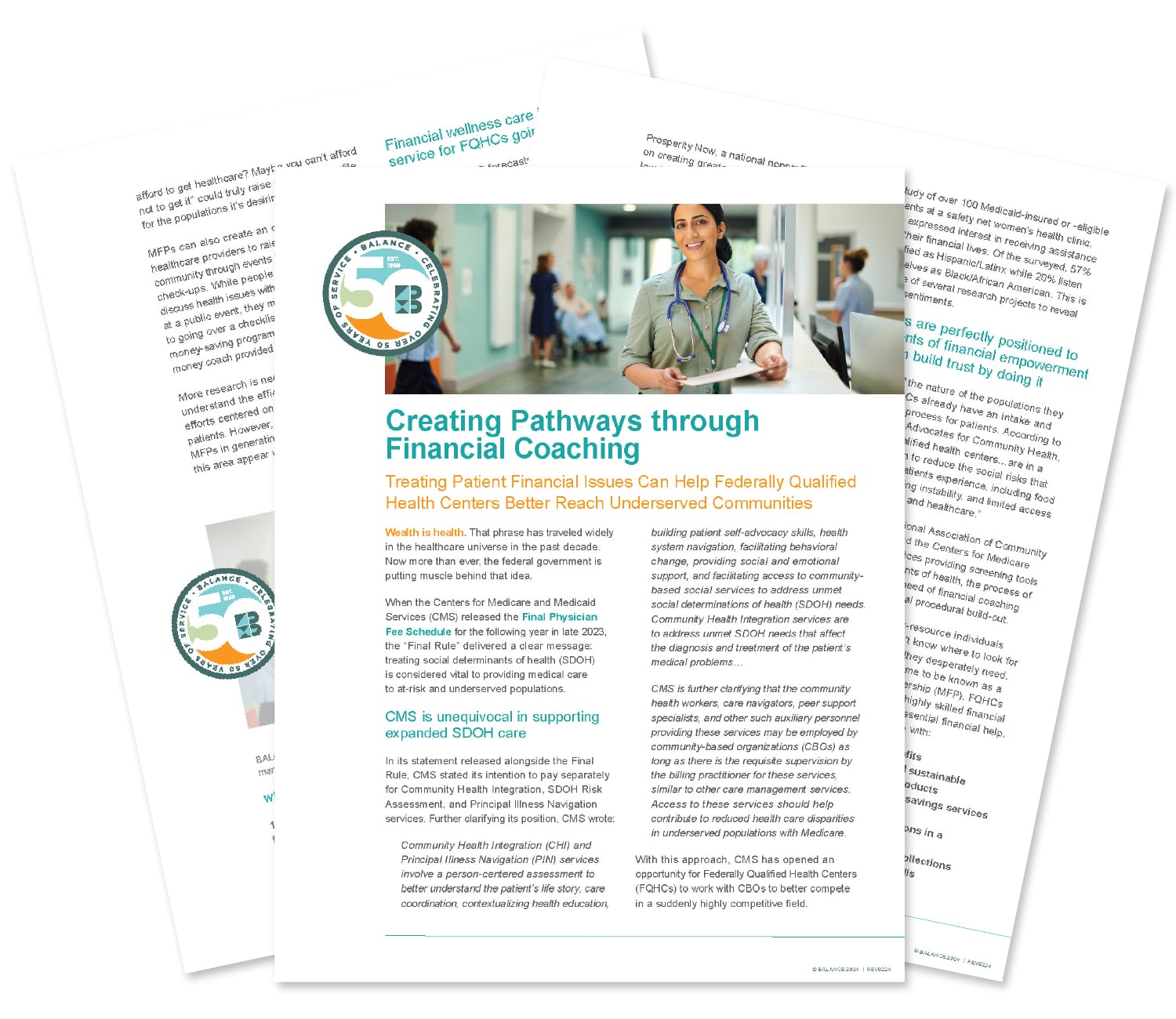
Thank you for your interest in our white paper, Creating Pathways through Financial Coaching.
Please click the button below to view and download the white paper or continue to read the summarized web version.
Related Resources
Treating Patient Financial Issues Can Help Federally Qualified Health Centers Better Reach Underserved Communities
In the evolving landscape of healthcare, Federally Qualified Health Centers (FQHCs) face formidable challenges, exacerbated by increased competition and the cessation of COVID-19 Public Health Emergency (PHE) funding. However, amid these challenges lies an opportunity for FQHCs to enhance patient care and community impact by addressing social determinants of health (SDOH) and financial wellness.
CMS Support for Expanded Care
The Centers for Medicare and Medicaid Services (CMS) have underscored the importance of treating SDOH, offering reimbursement for services such as Community Health Integration (CHI) and Principal Illness Navigation (PIN). This marks a significant shift in healthcare policy, emphasizing the holistic approach to patient care.
Financial Literacy as a Key Determinant
Financial instability is intricately linked to health outcomes, impacting patients’ ability to seek and adhere to medical care. Addressing financial literacy becomes crucial for promoting healthcare access and engagement, particularly among low-income populations served by FQHCs.
The primary concern is for the wellbeing of the people suffering through poverty, but the implications for FQHCs in lost opportunities to provide care are clear.
Financial Coaching: A Path to Economic Stability
Integrating financial coaching into healthcare settings has proven effective in improving patients’ financial capability and reducing barriers to care. By providing guidance on budgeting, debt management, and accessing financial resources, FQHCs can empower patients to prioritize their health.
%
Parents who received guidance through a financial empowerment program were 20% more likely to make all their child’s preventive care visits
Building Trust through Financial Empowerment
FQHCs are uniquely positioned to address patients’ financial needs, leveraging existing intake processes to identify those in need of financial coaching. Through Medical-Financial Partnerships (MFPs), FQHCs can refer patients to financial coaches, fostering trust and loyalty within the community.
Business Sense and Community Impact
Investing in financial wellness not only benefits patients but also strengthens FQHCs’ financial sustainability. By billing financial empowerment services and leveraging available funding, FQHCs can expand their outreach efforts and enhance community engagement.
Moving Forward: Prioritizing Patient Empowerment
As healthcare delivery models evolve, FQHCs must adapt to remain relevant and impactful. By prioritizing patient empowerment through financial wellness initiatives, FQHCs can fulfill their mission of serving underserved communities and promoting holistic health.
